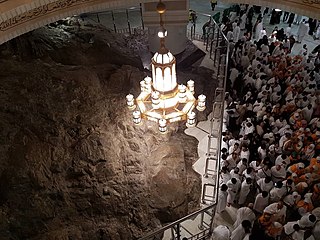The Protestant Church in the Netherlands is the largest Protestant denomination in the Netherlands, being both Calvinist and Lutheran.

Sociology of religion is the study of the beliefs, practices and organizational forms of religion using the tools and methods of the discipline of sociology. This objective investigation may include the use both of quantitative methods and of qualitative approaches.
Method literally means a pursuit of knowledge, investigation, mode of prosecuting such inquiry, or system. In recent centuries it more often means a prescribed process for completing a task. It may refer to:
Classification is a process related to categorization, the process in which ideas and objects are recognized, differentiated and understood. Classification is the grouping of related facts into classes. It may also refer to a process which brings together like things and separates unlike things.
In sociology, secularization is a multilayered concept that generally denotes "a transition from a religious to a more worldly level." Most versions of secularization do not lead to atheism, irreligion, nor are they automatically anti-thetical to religion. Secularization has different connotations such as implying differentiation of secular from religious domains, the marginalization of religion in those domains, or it may also entail the transformation of religion as a result of its recharacterization.
Administrator or admin may refer to:
Affirmation or affirm may refer to:

Deconsecration, also referred to as secularization, is the removal of a religious blessing from something that had been previously consecrated for religious use. In particular, church and synagogue buildings no longer required for religious use are deconsecrated for secular use, or for demolition.
Secular is an adjective describing something separate from religion.

Börringe Priory was a medieval Benedictine priory founded in 1150 at Svedala in Scania, Sweden. Secularized in 1536, the site was developed as a home for the Brahe family. The present large building, known as Börringeklosters slott, was built here in 1763.
Interpretation may refer to:
Validity or Valid may refer to:

The Mexican Secularization Act of 1833, officially called the Decree for the Secularization of the Missions of California, was an act passed by the Congress of the Union of the First Mexican Republic which secularized the Californian missions. The act nationalized the missions, transferring their ownership from the Franciscan Order of the Catholic Church to the Mexican authorities.
Secularization is the confiscation of church property by a government, such as in the suppression of monasteries. The term is often used to specifically refer to such confiscations during the French Revolution and the First French Empire in the sense of seizing churches and converting their property to state ownership.
In traditionalist philosophy, desacralization of knowledge or secularization of knowledge is the process of separation of knowledge from its perceived divine source—God or the Ultimate Reality. The process reflects a paradigm shift in modern conception of knowledge in that it has rejected divine revelations as well as the idea of spiritual and metaphysical foundations of knowledge, confining knowledge to empirical domain and reason alone. Although it is a recurrent theme among the writers of the Traditionalist school that began with René Guénon, a French mystic and intellectual who earlier spoke of "the limitation of knowledge to its lowest order", the process of desacralization of knowledge was most notably surveyed, chronicled and conceptualized by the Iranian philosopher Seyyed Hossein Nasr in his 1981 Gifford Lectures that were later published as Knowledge and the Sacred.
This page is based on this
Wikipedia article Text is available under the
CC BY-SA 4.0 license; additional terms may apply.
Images, videos and audio are available under their respective licenses.



